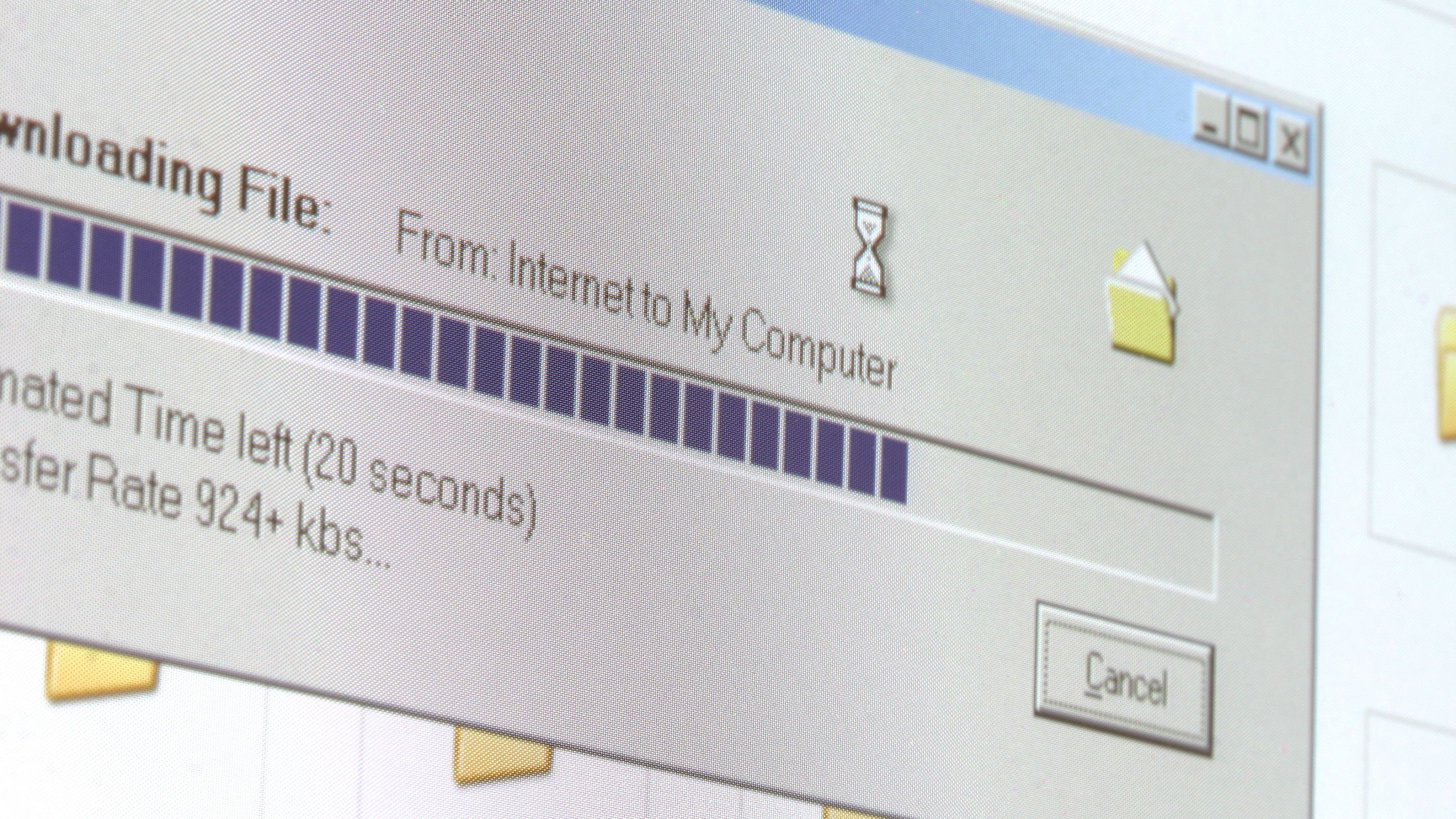Devs casually expose far-reaching loading bar conspiracy: 'People just don’t trust one that's too quick'
This one goes all the way to the top (after getting stuck on 78% for a few seconds).

Bad news, friends: We've been had. Deceived. Led up the garden path and comprehensively bamboozled. It turns out that, for all these years, our loading screens have been lying to us.
Spotted by GamesRadar, a jovial tweet about loading bars not being smooth enough—from comedian Alasdair Beckett-King—has prompted countless game devs to fess up to a conspiracy that goes to the heart of our hobby: Many loading bars in our favourite games bear zero relation to the actual progress of a load at all. Devs have just been putting them in for the psychological effect they have on players.
"Fun thing," tweeted Thomas Was Alone and John Wick Hex creator Mike Bithell in response to Beckett-King's tweet, "players don't trust a smooth loading bar. The stutters and pauses show you that the load is 'biting'. I've worked on games where we artificially faked it".
(Alasdair’s cool and this is a joke)Fun thing: players don’t trust a smooth loading bar. The stutters and pauses show you that the load is ‘biting’. I’ve worked on games where we artificially faked it.Game design: often starts before the game does. https://t.co/r8pbsEOm6JJune 28, 2023
Quelle horreur, I hear you cry in French for some reason. How could Bithell so blithely cop to a deception of this magnitude? Does he mean to suggest that the loading bars in his own games were fakes? Well, some of them at least. A reply to his tweet recounted the tale of a Fallout: New Vegas mod that put in loading screens it didn't even need because they somehow made the project seem more "professional". In response, Bithell said "hehe, I can neither confirm nor deny that Thomas Was Alone does the same thing".
Apparently, it's all to do with player psychology. Not having a loading bar, or watching one glide smoothly towards its terminus, just doesn't feel right, and paradoxically feels more artificial than a bar that fakes getting snagged at random stages of the loading process. It seems that, to convince our brains that real work is taking place, loading screens have to pretend to get 'caught,' so to speak, on particularly gristly chunks of file.
As if Bithell's casual admission of a world-historic subterfuge wasn't bad enough, that tweet then prompted all manner of devs to pop up claiming to have done the same thing in their own games. Rami Ismail popped up to say he's "worked on projects where we faked loading bars, extended loading times, or artificially made loading bars move at uneven speeds". In fact, Ismail doesn't think he's ever "coded a straight-up correct loading bar".
Raúl Munárriz, CEO over at Sexy Brutale developer Tequila Works, corroborated Ismail's experience: "I have never worked in a game that didn’t sport a fake loading bar. Real ones induce anxiety," said Munárriz. You know what else induces anxiety, Raúl? Deceit.
Keep up to date with the most important stories and the best deals, as picked by the PC Gamer team.
I could go on for days. Matt Salt over at Sumo Digital tweeted that he'd "done this a few times in games and apps" and that "people just don’t trust one that’s too quick". Alex Strook, dev on narrative adventure game The Spirit and the Mouse, said his team had "forced loading screens between levels to be at least 2-3 seconds" in that game, because it "just felt super weird to have near instant transitions on high end hardware". Loading screens, says Strook, make it feel "like your character is actually moving through the world + gives you some rest".
Kidding aside, this is actually a pretty cool insight into one of the peculiarities of game development and player psychology. It's interesting to see the ways in which players come to expect certain inefficiencies in their games, and get perturbed if they aren't present. It kind of reminds me of movies keeping themselves at 24 frames per second even though we can shoot at far higher FPS these days. Sure, it's technically higher quality, but it feels absolutely dreadful to watch for some basic, animal reason.
And if your faith has been crushed, there are still one or two truth-telling heroes out there. Mike Dailly, creator of Lemmings and one of the founding fathers of Grand Theft Auto, says he's "never faked one," in fact, he's "gone out of [his] way to try and make it as 'correct' and as smooth as possible". At least there are some honest people around.

One of Josh's first memories is of playing Quake 2 on the family computer when he was much too young to be doing that, and he's been irreparably game-brained ever since. His writing has been featured in Vice, Fanbyte, and the Financial Times. He'll play pretty much anything, and has written far too much on everything from visual novels to Assassin's Creed. His most profound loves are for CRPGs, immersive sims, and any game whose ambition outstrips its budget. He thinks you're all far too mean about Deus Ex: Invisible War.

